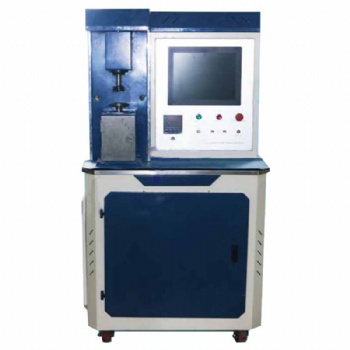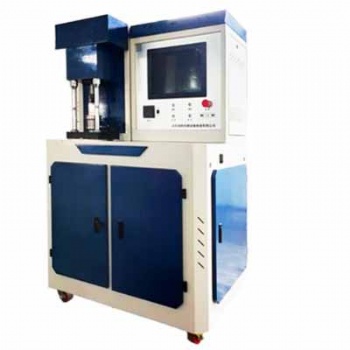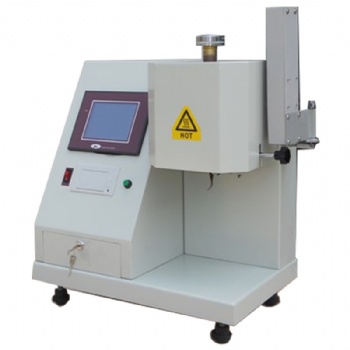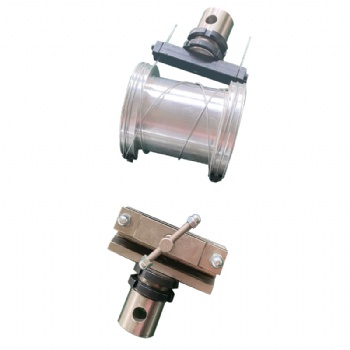News
Ceramic Tiles Testing Machines: Ensuring Quality and Durability
Ceramic Tiles Testing Machines: Ensuring Quality and Durability
Ceramic tiles are widely used in both residential and commercial construction due to their durability, aesthetics, and versatility. From floors to walls, tiles need to withstand various stresses such as loads, impacts, abrasion, and environmental factors. To ensure that tiles meet the necessary performance and safety standards, ceramic tile testing machines play a crucial role. In this blog, we’ll explore the essential aspects of ceramic tile testing, including relevant test standards, features of testing machines, and the importance of these tests in quality control.
Why Ceramic Tile Testing is Important
Ceramic tiles are subject to a wide range of forces throughout their lifespan. Whether it's the weight of foot traffic, heavy furniture, or the exposure to water, tiles must be able to endure significant stress without cracking or losing their appearance. Testing ensures that tiles not only meet aesthetic requirements but also perform well under various conditions, including mechanical stress, moisture, and wear.
Key Test Standards for Ceramic Tiles
Several international standards guide the testing procedures for ceramic tiles to ensure that they are suitable for their intended applications. The most widely used standards are:
ISO 10545: This is a comprehensive standard covering the methods for testing ceramic tiles. It includes tests for dimensions, water absorption, bending strength, impact resistance, thermal shock, and surface abrasion.
EN 14411: This European standard outlines specifications and test methods for ceramic tiles. It also classifies ceramic tiles based on their water absorption rate and mechanical properties.
ASTM C648: Standard test method for breaking strength of ceramic tiles. This is a key test in the U.S. to ensure tiles can withstand expected loads without cracking or breaking.
ASTM C373: Test method for water absorption, bulk density, apparent porosity, and apparent specific gravity of ceramic tiles.
These standards set out specific testing requirements to evaluate the mechanical and physical properties of tiles, ensuring that manufacturers can produce high-quality, reliable products.
Types of Ceramic Tile Testing Machines and Their Features
Ceramic tile testing involves several different machines, each designed to evaluate specific properties. Below are some of the most common types of ceramic tile testing machines and their key features:
1. Flexural Strength Testing Machine
The flexural strength (or bending strength) of ceramic tiles is an important parameter, as tiles are often subjected to bending forces in real-life applications. Flexural testing machines apply a controlled force to the tile until it breaks, determining how much bending stress the tile can withstand.
Key Features:
Load Capacity: Machines typically offer a range of capacities (e.g., 10kN or 20kN) to handle different tile sizes and thicknesses.
Three-point or Four-point Bending Setup: The machine applies the load using either a three-point or four-point setup, depending on the test standard.
Digital Control and Display: Real-time monitoring of load and deflection for precise and accurate results.
Compliance with Standards: Machines are designed to meet ISO 10545-4 (for flexural strength testing).
2. Water Absorption Testing Machine
Water absorption is a key factor in determining the durability of ceramic tiles, especially for outdoor applications. This test helps classify tiles as impervious, vitreous, or porous based on their ability to absorb water. The test machine measures how much water a tile absorbs after being submerged for a specific period.
Key Features:
Precision Balance: The machine includes a highly accurate weighing system to measure tile weight before and after submersion.
Controlled Water Bath: Automated water temperature control and immersion timing ensure consistent test conditions.
Adherence to Standards: Machines are built to conform to ISO 10545-3 and ASTM C373 standards for water absorption.
3. Abrasion Resistance Testing Machine (Böhme Abrasion Tester)
Abrasion resistance is crucial for tiles used in high-traffic areas such as shopping malls, airports, and public spaces. The Böhme abrasion tester evaluates the resistance of ceramic tiles to wear by rotating abrasive material against the tile's surface.
Key Features:
Rotating Abrasion Disc: The machine rotates an abrasive disc under a specified load, simulating wear.
Automatic Counter: Tracks the number of revolutions or cycles completed during testing.
Test Standard Compliance: Meets ISO 10545-6 for surface abrasion of glazed ceramic tiles.
4. Breaking Strength Testing Machine
Breaking strength tests measure how much force a tile can withstand before it cracks or breaks. The test is particularly important for floor tiles, as they need to support heavy loads without failing. Machines for this test are typically designed to apply increasing force on the tile until it breaks.
Key Features:
Load Capacity: High-capacity machines capable of testing even the thickest, strongest tiles.
Automated Load Application: Ensures that force is applied at a consistent rate until the tile breaks.
Test Standard Compliance: Meets ASTM C648 and ISO 10545-4 standards for breaking strength.
5. Thermal Shock Resistance Testing Machine
Thermal shock resistance testing determines how well ceramic tiles can withstand rapid changes in temperature without cracking. This test is essential for tiles used in environments with extreme temperature fluctuations, such as outdoor settings or near fireplaces.
Key Features:
Thermal Cycling Chamber: The machine includes a chamber that can quickly heat and cool the tile to specified temperatures.
Precise Temperature Control: Ensures accurate and repeatable temperature changes as required by the test standard.
Standards Compliance: Meets ISO 10545-9 for thermal shock resistance.
Importance of Ceramic Tile Testing
Ceramic tile testing is critical in ensuring that tiles meet performance and safety standards. Poor-quality tiles can lead to cracking, water absorption, and wear, which could compromise the structural integrity and appearance of floors and walls. Comprehensive testing helps manufacturers produce durable, high-quality tiles that can withstand various conditions, ensuring customer satisfaction and compliance with industry regulations.
Key Benefits of Testing:
Ensures Product Durability: By testing for breaking strength, water absorption, and abrasion resistance, manufacturers can ensure their tiles will last under real-world conditions.
Adherence to Standards: Following international standards ensures that tiles meet market and regulatory requirements.
Improved Customer Confidence: Certified, tested products enhance the reputation of manufacturers and give customers confidence in the product’s performance.
Conclusion
Ceramic tile testing machines are essential tools for manufacturers and quality control laboratories. They ensure that tiles meet strict standards for mechanical strength, water absorption, and wear resistance. By investing in high-quality testing equipment, manufacturers can guarantee the durability and performance of their ceramic tiles, ensuring they meet both customer expectations and regulatory requirements.
From flexural strength to thermal shock resistance, these tests provide the data necessary to produce top-tier ceramic tiles suitable for any application. As the demand for durable, high-performance tiles continues to grow, the role of comprehensive testing becomes ever more important.
Looking for the right testing machine for your ceramic tiles? Explore our range of ceramic tile testing equipment to ensure your products meet industry standards and perform to their highest potential.
1000N tension load tester, 1000kn hydraulic universal testing machine, 600kn hydraulic universal testing machine
Categories
Contact Us
- +86-18615632092
- wtbequipment@hotmail.com
- sophie-tester
- +86-18615632092




 售前客服
售前客服